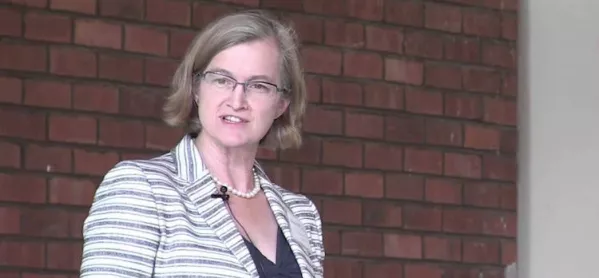Less than a quarter of primary schools visited by Ofsted in a trial of the planned new inspection framework scored highly for the quality of their curriculum.
The inspectorate’s findings show that only eight out of the 33 primary schools visited scored highly for their curriculum compared with 16 out of 29 secondaries. And nearly half (15) of the primaries finished in the bottom two of five ratings, compared with a total of three secondaries.
The inspectorate visited the schools to test how the regulator would inspect the intent, implementation and impact of school curriculum for the new inspection framework, which will be introduced later in 2019.
Ofsted’s research shows that when broken down by subjects, the overwhelming majority of high scores that primary schools achieved came in English and maths.
Chief inspector Amanda Spielman said: “It is a truism that what gets measured gets done. English and mathematics are what are measured in primary schools.
“It is hardly surprising, then, that they get the most lesson time and most curricular attention from leaders. It is clearly possible to do this badly, as we found in phase 1, where some schools were practicing [sic] Sats as early as Christmas in Year 6 and focusing on reading comprehension papers rather than actually encouraging children to read.
“However, our results here appear to suggest that many more primary schools are doing it well. Unfortunately, the same cannot be said for the foundation subjects. It is disappointing to see so few higher scores in technology subjects, humanities and arts.”
And of the 14 scores from schools from science, only two had either of the top two of the five possible ratings.
Yesterday, an academic warned that a lack of scientifically literate primary school teachers was a “disaster” for Britain.
Professor John Baruch, director of the Leeds Beckett University Centre for Education for the Fourth Industrial Revolution, said the country needed to embed a “science-based” curriculum, but noted a “woeful shortage of scientifically literate teachers in primary schools”.
Ms Spielman said that earlier Ofsted research had found that almost all of the primaries looked at used topics or themes as their way of teaching the foundation subjects (not English, maths or science).
“However,” she added, “the ones that were most invested in curriculum design had a clear focus on the subject knowledge to be learned in each subject and designed their topics around that. What appears to happen more often, though, is a selection of topics being taught that do not particularly link together or allow good coverage of and progression through the subjects.”
Ofsted’s latest research looked at how it could assess intent, implementation and impact of a school’s curriculum. The inspectorate visited a total of 64 schools, including two special schools, to test its model of curriculum inspection. It is the third piece of research on curriculum that Ofsted has produced, as the organisation prepares to revise how it inspects schools under a new framework.
Two months ago, Ofsted visited schools that were said to be invested in curriculum design. The inspectorate said this showed that some schools took a knowledge-led approach to their curriculum while others designed the curriculum around the development of skills.
In a post published by Ofsted two months ago, Ms Spielman said the inspectorate found strengths and weaknesses in both of these approaches, and noted that both knowledge and skills were important.
Of the 23 schools visited, about a third were described by Ofsted as having a knowledge-led curriculum, half were said to be knowledge-engaged and a small group were skills-led.
This led to claims that Ofsted was biased towards a knowledge-based curriculum. However, the inspectorate rejected this suggestion.
Ofsted’s new inspection framework will have an increased focus on curriculum, as part of an attempt to measure the overall quality of education that a school provides, rather than just grades.
Earlier Ofsted research found that “there was a dearth of understanding about the curriculum in some schools”.




